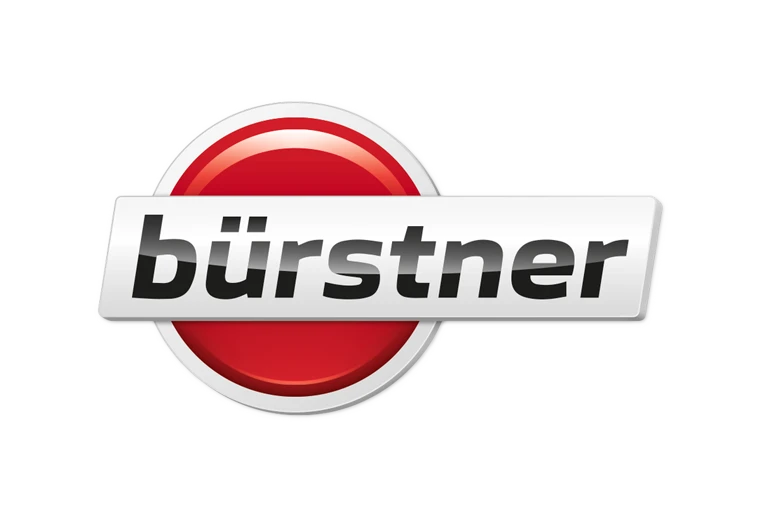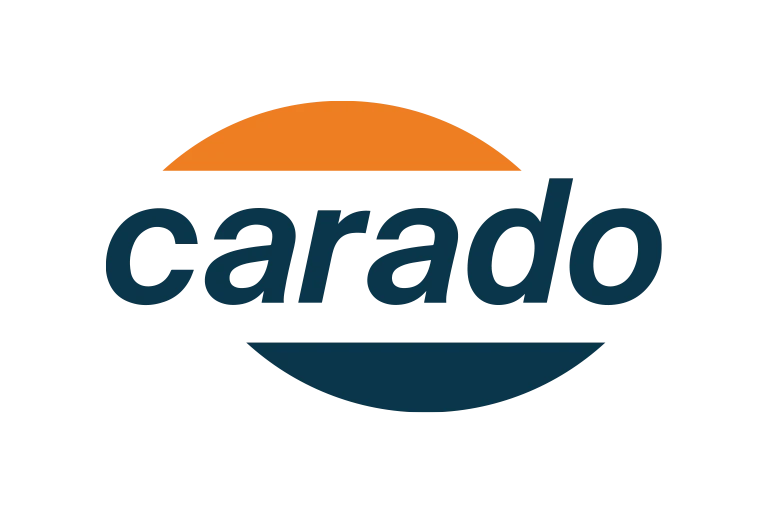The Complete Guide to Motorhomes: Exploring the Different Types
Dreaming of a UK road trip for your next holiday? You're not alone—this travel trend is rapidly gaining popularity! A motorhome or campervan offers the perfect blend of mobility and comfort, providing a cosy living space for your adventures. Some models even bring a touch of luxury to your journey. However, with such a wide variety of motorhome classes, shapes, and sizes available, it's understandable to feel overwhelmed when deciding where to start.
In this guide, Camper UK will help you navigate the different motorhome classes so you can confidently choose the ideal vehicle for your travel needs before you hit the open road.
What is a Motorhome?
Before diving into the specific classes of motorhomes, it's essential to define what a motorhome actually is. A motorhome is a self-contained, recreational vehicle (RV) designed to serve as both transport and comfortable living quarters for its occupants. This dual functionality makes motorhomes a fantastic choice for travellers seeking flexibility and convenience.
Key features of motorhomes typically include:
- Kitchens: Compact yet functional spaces for cooking on the go.
- Bathrooms: Private areas with toilets, showers, and sinks.
- Sleeping Areas: Beds or convertible spaces to ensure a good night's rest.
- Storage: Ample compartments for clothing, food, and travel essentials.
These amenities allow travellers to enjoy the freedom of exploring various destinations while retaining the comforts of home.
Understanding Motorhome Classes
Motorhomes and Campervans are categorised into different classes based on size, design, and features. Here's a quick overview of the primary categories:
- A Class Motorhomes: Luxurious, spacious, and ideal for long-term travel.
- Coachbuilt Motorhomes (C Class Motorhomes): A great balance of comfort and practicality.
- Van Conversions (B Class): Compact, fuel-efficient, and perfect for couples or solo travellers
- Campervans: Smaller, versatile vehicles suited for shorter trips or more minimalist travellers
Each class offers unique benefits, so it's important to choose a motorhome that aligns with your travel plans and preferences. Camper UK is here to guide you through the decision-making process, ensuring your next road trip is both enjoyable and memorable.
A Class Motorhomes: Luxury on Wheels
As the most prestigious category of motorhomes, A Class motorhomes are the epitome of luxury and comfort. Designed with spacious interiors and premium amenities, they are perfect for families seeking a home-away-from-home experience on the road. These motorhomes stand out for their versatile layouts and significant advantages over other classes.
What Defines an A Class Motorhome?
The defining characteristic of an A Class motorhome is its construction. Built on a heavy-duty chassis, these vehicles offer unmatched storage capacity and living space. They are particularly well-suited for long-term road living or extended excursions, making them an excellent choice for those who prioritise comfort and convenience.
For families, A Class motorhomes deliver all the luxuries of home. They are the largest motorhome option available, featuring layouts that can accommodate up to eight people. While these vehicles are among the most expensive in the market, their size and premium features make them ideal for unforgettable family vacations.
Why Choose an A Class Motorhome?
The extra space in an A Class motorhome translates to enhanced luxury and better amenities. Expect features such as larger showers, additional beds, and spacious toilet areas. Generous storage compartments also make these motorhomes ideal for long journeys where ample packing space is a necessity.
Key Specifications
- Price Range: Starting from £90+ and exceeding £250,000 for premium models.
-
Average Dimensions:
- Height: 13ft (4m)
- Length: 30ft (10m)
- Width: 8ft 6in (2.5m)
- Weight: Generally over 3.5 tonnes but under 7.5 tonnes.
- Driving Licence: Requires a licence with over 3.5-tonne entitlement, depending on the vehicle's Maximum Authorised Mass (MAM).
Typical Features of A Class Motorhomes
- Self-contained bathroom
- Spacious living and family entertainment areas
- TVs for on-board entertainment
- Fully equipped kitchen with fridge
- Integrated cabin design
- Exceptional insulation for year-round comfort
Advantages of A Class Motorhomes
- Luxury interiors equipped with high-quality amenities
- Spacious enough to accommodate large families (up to eight people)
- Ideal for extended trips with generous storage and facilities
- Provides a fully integrated cabin experience
Disadvantages of A Class Motorhomes
- High upfront costs
- Poor fuel efficiency due to their size
- Expensive to maintain and operate
- Challenging to park, especially in urban areas
- Limited access to some campsites due to size restrictions
For those seeking the ultimate in luxury and comfort, A Class motorhomes represent a worthwhile investment. Camper UK offers a range of these premium vehicles, ensuring you can find the perfect model to suit your family's needs and travel aspirations.
Coachbuilt Motorhomes: C Class Versatility and Comfort
Transitioning from A Class to B Class motorhomes often involves a reduction in size and luxury, but moving from a B Class to a C Class motorhome doesn't mean sacrificing space. Coachbuilt motorhomes, also known as C Class, are larger than B Class Campervans and provide a balance of functionality and comfort, making them ideal for families or extended road trips.
What Is a Coachbuilt Motorhome?
Coachbuilt motorhomes are constructed on a cab or cut-away chassis, often resembling a van in the front with a cab structure. These vehicles typically include seating, a dash, opening doors, and a variety of amenities such as storage compartments, sleeping areas, kitchens, bathrooms, and living spaces. Designed to accommodate 2 to 6 people, C Class motorhomes offer many of the comforts of home, making them suitable for long excursions or extended road living.
While they share some features with A Class motorhomes, C Class vehicles are slightly more compact and affordable, earning them the nickname "A Class lite." They strike an excellent balance between the size and luxury of A Class models and the affordability and agility of B Class motorhomes.
Low-Profile Coachbuilt Motorhomes
Low-profile C Class motorhomes differ from larger models in that they lack a projection over the cab. Despite this streamlined design, they are still packed with essential facilities, making them a popular choice for travellers seeking comfort and practicality.
- Price Range: Starting at around £70,000.
-
Average Dimensions:
- Height: 9ft (2.74m)
- Length: 28ft (8.53m)
- Width: 8ft 4in (2.53m)
- Weight: Typically 3 tonnes but can reach up to 5 tonnes.
- Driving Licence: Requires a special licence category if the motorhome exceeds 3.5 tonnes.
Typical Features
- Curved skylight for natural light
- Ample storage space
- Drop-down beds
- Two single beds or a fixed double bed at the rear
- Garage space for bicycles or outdoor gear
Advantages
- Reduced wind resistance for better handling
- Flexible drop-down sleeping arrangements
- Sleek, attractive design
- Fixed double beds for added comfort
Disadvantages
- Payload limitations can restrict storage capacity
- Prices can vary significantly depending on features
Overcab Beds in Coachbuilt Motorhomes
Some C Class motorhomes include an overcab projection that provides extra sleeping or storage space. These models are perfect for families or groups requiring additional facilities.
-
Average Dimensions:
- Height: 11ft (3.35m)
- Length: 20ft (6m)
- Width: 8ft 4in (2.53m)
- Weight: Starts at 3 tonnes and can reach up to 5 tonnes.
- Driving Licence: May require a specific licence category depending on the vehicle's weight.
Typical Features
- Extra sleeping or storage space over the cab
- Convertible lounge area for additional sleeping options
- Drop-down sleeping arrangements
Advantages
- Overcab areas are fun and practical for children
- Good resale value due to high demand
- Extra space for additional amenities
Disadvantages
- Less aerodynamic design can reduce fuel efficiency
- Stability and road handling may be affected
- Heavier weight results in lower overall fuel economy
Coachbuilt motorhomes offer a balance of comfort, space, and affordability, making them an excellent choice for families or couples who enjoy extended trips. Camper UK provides a variety of C Class motorhomes to suit different needs and budgets, ensuring your next road trip is a comfortable and memorable experience.
Van Conversions: Compact and Versatile
Van conversions, also known as B Class motorhomes, travel campers, or camping cars, are a popular choice for those seeking a more compact and manageable vehicle. Unlike the larger and more imposing A Class motorhomes, van conversions are smaller and ideal for occasional travellers or couples who prioritise mobility and efficiency.
What Is a Van Conversion?
A van conversion starts with a standard van chassis, which can be modified to create a functional and comfortable motorhome. Travellers can choose to purchase a pre-converted panel van or opt to convert a commercial vehicle themselves—or hire a professional to do so. The result is a motorhome that strikes a balance between practicality and customisation.
Key Specifications
- Price Range: Starting at £60,000 for a standard conversion.
-
Average Dimensions:
- Height: 8ft 4in (2.5m)
- Length: 19ft 6in (5.94m)
- Width: 6ft 3in (1.9m)
- Weight: Approximately 2 tonnes.
- Driving Licence: Can be driven with a standard UK licence.
Typical Features
While van conversions offer fewer luxuries than larger motorhomes, they come equipped with essential facilities that make them a comfortable choice for travellers Common features include:
- A compact but well-equipped kitchen area
- A washroom with a shower and toilet
- Sleeping areas such as foldable or fixed beds
- Ample storage space and on-board amenities
Despite their smaller size, some van conversions can include features comparable to those in A Class motorhomes, depending on the level of customisation.
Advantages of Van Conversions
- Higher fuel efficiency, resulting in lower running costs
- Customisable layouts to suit individual needs
- Compact design allows easy parking, even in urban areas
- Overhead cabin storage or overcab sleeping options
- A practical option for short trips or quick getaways
Disadvantages of Van Conversions
- Limited sleeping space compared to larger motorhomes
- Smaller bathroom facilities
- Less room for luxury features such as expansive kitchens or washing machines
Van conversions are an excellent choice for those who value simplicity and flexibility in their travels. Whether you're exploring the countryside or heading off on a weekend adventure, Camper UK offers a variety of van conversions to suit your needs. These motorhomes provide the perfect balance of convenience and comfort for occasional travellers or minimalist adventurers.
Camper Vans: Versatile and Compact Travel Companions
Camper vans are smaller than traditional motorhomes, making them an excellent option for those seeking simplicity and mobility. Unlike motorhomes, camper vans typically lack a separation between the cab and living quarters. Facilities for cooking, washing, and sleeping are more basic, but these vehicles are ideal for shorter trips and minimalist travellers Most camper vans are designed to accommodate two to three people, offering compact kitchens and bathrooms where available.
Rising Roof Camper Vans
Also known as pop-top camper vans, these models are characterised by an expanding roof that provides additional headroom or sleeping space. They are one of the most popular camper van types due to their practicality and ease of use.
-
Average Dimensions:
- Height: 10ft (3m)
- Length: 19ft (5.8m)
- Width: 6ft 3in (1.9m)
- Weight: 2 tonnes
- Driving Licence: Standard UK licence required.
Typical Features
- Expandable roof for added sleeping space
- Compact kitchen and storage
- Basic amenities for short trips
Advantages
- Drives like a car, making it easy to handle on the road
- Expanding roof provides ventilation and extra sleeping space
- Perfect for off-road or hard-to-reach destinations
- Suitable for daily use as a vehicle
Disadvantages
- Limited interior space for seating and activities
- Heat loss may occur due to the pop-top design
- Restricted amenities compared to larger motorhomes
Fixed Roof Camper Vans
Fixed roof camper vans are the simplest and most budget-friendly option, making them ideal for those with tight finances. However, most manufacturers no longer produce new fixed roof models, so these vehicles are typically available only as used options.
-
Average Dimensions:
- Height: 9ft (2.74m)
- Length: 18ft (5.5m)
- Width: 6ft 3in (1.9m)
- Weight: 2 tonnes
- Driving Licence: Standard UK licence required.
Typical Features
- Good insulation for year-round use
- Compact storage for personal belongings
- Lower cost compared to high-roof camper vans
Advantages
- Small size allows it to fit in a garage when not in use
- More affordable for budget-conscious buyers
Disadvantages
- Limited headroom can reduce comfort
- Resale value may be lower due to discontinued production
High-Top Camper Vans
High-top camper vans, also known as high-top van conversions, provide additional headroom and storage, making them a popular choice for travellers who need extra comfort and space. These vehicles come in various layouts and can include more advanced amenities.
-
Average Dimensions:
- Height: 9ft (2.74m)
- Length: 20ft (6m)
- Width: 6ft 3in (1.9m)
- Weight: 2 tonnes
- Driving Licence: Standard UK licence required.
Typical Features
- Dedicated lounge area
- Toilet and optional bunk beds
- Spacious storage options
Advantages
- Offers better comfort and storage than smaller camper vans
- Long-wheelbase options available for added space
- Great for families with older children
Disadvantages
- Limited internal space due to the wheelbase
- Higher price point compared to fixed roof models
Camper vans are perfect for those seeking a compact and versatile travel option. Whether you're looking for a rising roof model for family adventures, a fixed roof van for budget travel, or a high-top camper van for added space, Camper UK has options to suit every traveller's needs.
How to Decide What Motorhome Type You Need
Buying a motorhome is a significant decision that requires careful consideration. With so many options available, it's important to think about your specific needs, preferences, and budget. From size and layout to features and budget, Camper UK is here to guide you through the process with these helpful tips:
1. Outline Your Must-Haves
Begin by identifying the features and amenities you consider essential versus those that are optional. Do you need a fully equipped kitchen? Is a dedicated sleeping area non-negotiable? Prioritising your needs will streamline your search and help you focus on the best options for your lifestyle.
2. Set a Realistic Budget
Start by setting a realistic budget for your motorhome. Remember, the more you spend on the vehicle, the less you'll have for adventures and extras. Sticking to your budget ensures a balanced investment.
3. Decide Between New or Pre-Owned
Consider whether a brand-new motorhome or a second-hand model is the better option for you. A well-maintained used motorhome can often offer more value for your money, with additional features and upgrades included.
4. Test Drive Before Committing
Test-drive different motorhome models to find one that suits your travel style. A hands-on experience helps you evaluate how the vehicle handles and ensures it meets your expectations.
5. Understand Driving Licences and Requirements
Make sure everyone in your group who plans to drive meets the vehicle's licence requirements. For motorhomes over 3.5 tonnes, you may need additional entitlements. Take it for a test drive to ensure comfort and confidence in handling.
6. Think About Useful Accessories
Think about the extras you might need to enhance your experience. Accessories like outdoor grills and solar showers can reduce reliance on internal appliances, saving money and maximising space.
7. Prepare for Different Climates
If you're planning winter trips, ensure the motorhome has proper heating and insulation. For summer journeys, air conditioning can make a significant difference in comfort levels.
8. Prioritise a Functional Layout
The motorhome layout is critical. Consider where the kitchen, dining, lounge, and sleeping areas are located and whether they align with your needs. A well-planned design enhances your travel experience.
9. Ensure There's Enough Space
Think about how many people will be traveling. Does the motorhome offer enough room for everyone to sleep and move comfortably? Evaluate the internal height, width, and sleeping arrangements to ensure it fits your family or group.
10. Look for Ample Storage Options
A stress-free trip requires sufficient storage space. Look for motorhomes with ample compartments for clothing, gear, and food supplies. Organised storage makes traveling more enjoyable.
11. Seek Professional Input
If you're considering a second-hand motorhome, have it inspected by a qualified mechanic. Their expertise ensures you're aware of any issues before purchasing.
12. Research Insurance Policies
Motorhome insurance varies significantly, so shop around to find the best coverage at a competitive rate. Always read the fine print to ensure you're fully covered for your travels.
13. Buy from a Specialist
Purchasing from a reputable dealer like Camper UK gives you added peace of mind. Specialists offer warranties on both the base vehicle and conversion, along with expert advice to ensure you find the perfect motorhome for your needs.
By carefully considering these factors, you'll be well-equipped to choose the ideal motorhome for your travel adventures. Whether you're looking for a brand-new model or a pre-loved vehicle, Camper UK is here to help make your motorhome journey a reality.
Conclusion
Purchasing a motorhome or campervan is undoubtedly a significant investment, but it doesn't have to be a stressful experience. By doing your research and understanding your options, you can make an informed decision that suits your travel needs and budget. From compact micro-motorhomes to luxurious A Class models, there's a motorhome for everyone. With the added benefit of not needing a towing vehicle, owning a motorhome offers unparalleled convenience and freedom, making it an investment worth every penny.
Are you ready to begin your motorhome journey? Camper UK is proud to be one of the UK's most trusted names in new and used motorhomes. With a wide selection of models across all classes, our team is dedicated to helping you find the perfect motorhome to suit your lifestyle. Let us help you embark on your next great adventure!
FAQs
How many types of motorhomes are there?
There are several types of motorhomes to choose from, including A Class, B Class (van conversions), C Class (coachbuilt), and Campervans This guide highlights the most common motorhome types available in the UK. While the naming conventions may differ in the US, the features and functionality remain largely similar. If you're new to the world of motorhomes, it's worth familiarising yourself with these classes to find the best fit for your needs.
What is the difference between an RV and a motorhome?
A motorhome is a step up from a campervan, offering more spacious and comfortable living quarters. It's designed for families or groups of friends, often featuring fixed double beds, drop-down beds, and private bathrooms with showers and toilets.
An RV (recreational vehicle), on the other hand, represents the pinnacle of size, luxury, and price. Often built on truck chassis, RVs can include towable travel trailers and fifth wheels. These vehicles offer unmatched comfort, with some models comparable to luxury coaches. However, their size and operational costs make them less practical for certain campsites and drivers who lack the necessary licence.
Which type of motorhome is easiest to drive?
Of all the motorhome classes, B Class motorhomes (van conversions) are the easiest to drive. Their compact size and design make them feel similar to driving a standard van, ensuring a smoother experience on both the UK's main roads and narrower country lanes. For most travellers, B Class motorhomes offer a great balance of comfort and practicality while remaining manageable to drive.
What is the most reliable brand of motorhome?
Reliability in motorhomes isn't tied to a single brand, as these vehicles are constructed from thousands of components sourced from multiple manufacturers. While every motorhome is built to provide years of reliable use, occasional issues can arise. The key is ensuring support from the supplying dealer, motorhome converter, and base vehicle manufacturer when faults occur.
If you're purchasing a used motorhome, choose a reputable dealer who thoroughly inspects and prepares each vehicle. Look for dealers offering multi-year parts and labour warranties, as these provide added peace of mind and cover potential repairs down the line. Camper UK ensures all motorhomes are maintained to the highest standards, helping you buy with confidence.
Ready to buy your next Motorhome or Campervan?
All Motorhomes A Class Motorhomes Coach Built Motorhomes Campervans Van Conversions
Camper UK Motorhome Brands
We can introduce you to a limited number of finance providers. We do not charge fees for our Consumer Credit services. We will receive a payment(s) or other benefits from finance providers should you decide to enter into an agreement with them, typically either a fixed fee or a fixed percentage of the amount you borrow. The payment we receive may vary between finance providers and product types. The payment received does not impact the finance rate offered.




